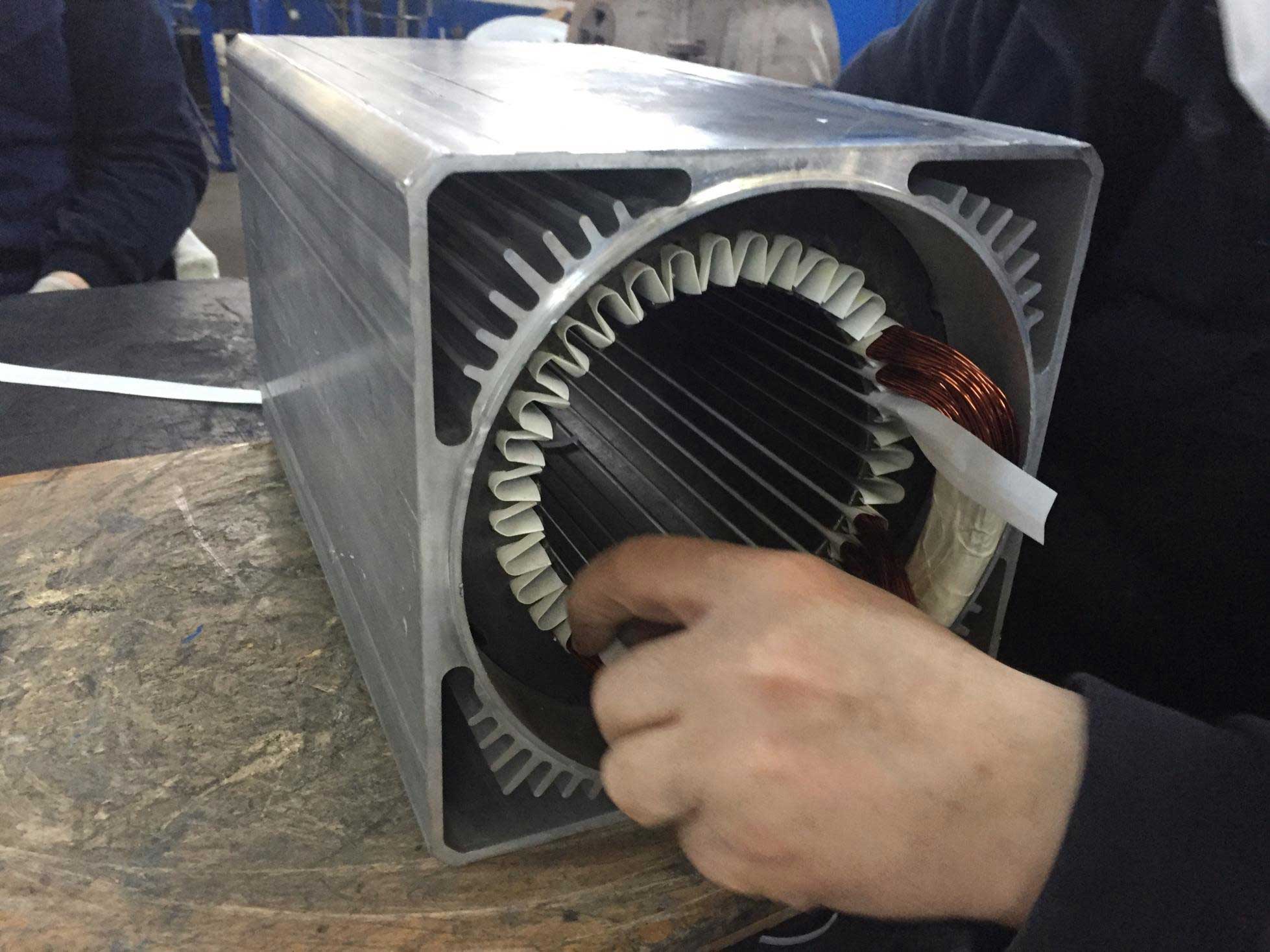
Our workshop is equipped with a winding facility where we address the stator winding issues of servo motors brought in for repair and maintenance purposes.
In our dedicated winding workshop, we are capable of successfully and efficiently handling the winding (rewinding) of various types of electric motors, including servo motors, spindle motors, asynchronous motors, DC motors, high-voltage motors, and more, without any power or voltage limitations.
For the winding of servo motors and other motors, we utilize high-quality materials such as H-class enamel copper wire, F-class insulation papers, and other premium winding components. These materials, combined with skilled craftsmanship, allow us to effectively solve our valued customers' problems.
Furthermore, after the winding process, all motors undergo insulation and surge tests using state-of-the-art testing equipment to ensure the quality of the performed work. As a testament to our confidence in the quality of our services, we provide a one-year warranty for all our servo motor repair, maintenance, and rewinding services.
Read More
